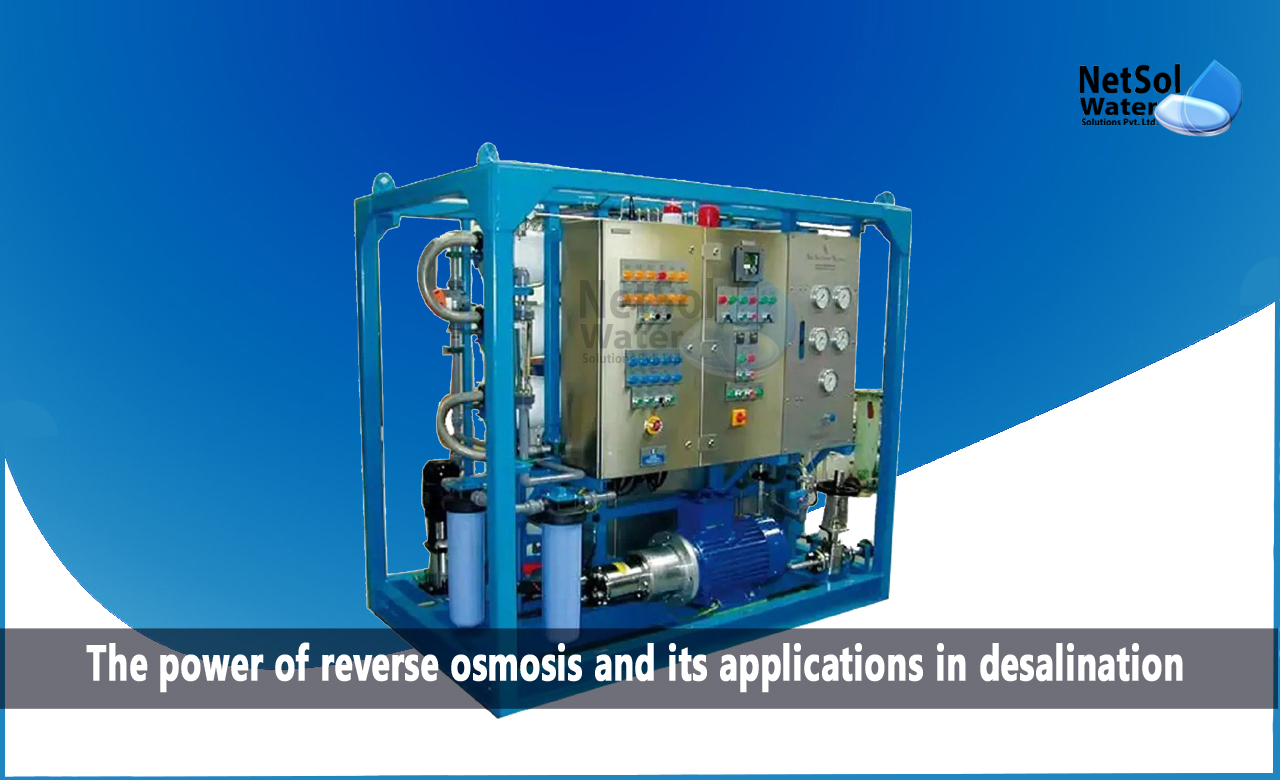The power of reverse osmosis and its applications in desalination
Access to fresh water is crucial for human survival and economic development, yet water scarcity remains a pressing global issue. Desalination, the process of converting seawater or brackish water into freshwater, has gained significant attention as a viable solution. Among the various desalination technologies, reverse osmosis (RO) has emerged as a game-changer, offering efficient and cost-effective water purification. In this blog, we will explore the power of reverse osmosis and its applications in desalination.
Understanding Reverse Osmosis:
a. The Science Behind Reverse Osmosis: Reverse osmosis is a process that utilizes semi-permeable membranes to remove dissolved salts, minerals, and impurities from water. By applying pressure to the water, it is forced through the membrane, allowing pure water molecules to pass while retaining the contaminants.
b. Role of Membranes in Desalination: The semi-permeable membranes used in reverse osmosis play a critical role in separating salt and impurities from water. The membranes have tiny pores that allow water molecules to pass through, while rejecting larger particles, ions, and salts.
c. Key Components of Reverse Osmosis: Desalination Systems RO desalination systems consist of various components, including pre-treatment units, high-pressure pumps, membranes, pressure vessels, and monitoring/control systems. Each component is essential for the efficient operation and performance of the desalination plant.
Applications in Desalination:
Reverse osmosis has found wide-ranging applications in desalination:
a. Seawater Desalination: RO is extensively used for seawater desalination, where it removes salt and impurities to produce fresh drinking water or irrigation water. Seawater desalination plants have been implemented in coastal regions worldwide, helping to address water scarcity.
b. Brackish Water Desalination: RO is also suitable for desalinating brackish water sources, such as groundwater with high salinity levels. It provides an efficient and cost-effective solution for producing freshwater in areas where brackish water resources are abundant.
c. Industrial Desalination: Reverse osmosis is employed in various industries, including power plants, refineries, and manufacturing facilities, for the treatment of process water and to remove salts and impurities from industrial wastewater.
Benefits of Reverse Osmosis in Desalination:
a. High Water Recovery Rates: Reverse osmosis desalination systems can achieve high water recovery rates, meaning a significant portion of the input water is converted into fresh water, maximizing efficiency and minimizing water waste.
b. Effective Salt and Contaminant Removal: RO effectively removes salts, minerals, heavy metals, and other contaminants from water, ensuring the production of high-quality freshwater that meets or exceeds drinking water standards.
c. Energy Efficiency: Compared to other desalination technologies, reverse osmosis is relatively energy-efficient. Technological advancements have led to improved membrane performance, reduced energy requirements, and increased overall efficiency of desalination plants.
d. Sustainability and Environmental Impact: Reverse osmosis desalination offers environmental benefits by reducing the reliance on freshwater sources and minimizing the impact on natural ecosystems. Additionally, the brine concentrate generated during the desalination process can be managed through proper disposal or beneficial reuse strategies.
Challenges and Innovations:
a. Membrane Fouling and Scaling: One of the major challenges in reverse osmosis desalination is membrane fouling and scaling, which can reduce system performance and increase maintenance requirements. Ongoing research and development focus on innovative membrane materials, improved pre-treatment techniques, and cleaning protocols to address these challenges.
b. Concentrate Disposal: The disposal of the concentrated brine or reject stream generated during desalination is a critical issue. Innovative approaches, such as brine minimization, brine treatment, and resource recovery, are being explored to reduce the environmental impact and enhance sustainability.
c. Cost and Affordability: The initial investment and operational costs of reverse osmosis desalination plants have historically been a concern. However, advancements in technology, economies of scale, and the integration of renewable energy sources have contributed to cost reductions and increased affordability.
d. Technological Advancements: Ongoing research and development in reverse osmosis technology continue to drive innovations in membrane materials, system design, and process optimization. These advancements aim to further improve efficiency, enhance water recovery rates, and reduce energy consumption in desalination processes.
Conclusion:
Reverse osmosis has revolutionized desalination, providing a powerful solution to address water scarcity and ensure access to clean and fresh water. With its applications in seawater and brackish water desalination, as well as industrial water treatment, reverse osmosis offers numerous benefits, including high water recovery rates, effective salt removal, energy efficiency, and sustainability. Despite challenges related to membrane fouling, concentrate disposal, and cost, ongoing innovations and advancements in technology are driving the continuous improvement of reverse osmosis desalination systems. As the global demand for freshwater increases, the power of reverse osmosis will play a pivotal role in securing water resources and promoting a sustainable future.
Netsol Water is Greater Noida-based leading water & wastewater treatment plant manufacturer. We are industry's most demanding company based on client review and work quality. We are known as best commercial RO plant manufacturers, industrial RO plant manufacturer, sewage treatment plant manufacturer, Water Softener Plant Manufacturers and effluent treatment plant manufacturers. Apart from this 24x7 customer support is our USP. Call on +91-9650608473, or write us at enquiry@netsolwater.com for any support, inquiry or product-purchase related query.



